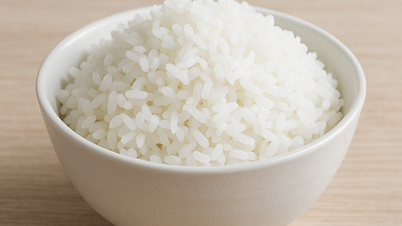Reducing belly fat is not just an aesthetic goal but also a health issue. Belly fat is not just subcutaneous fat but also visceral fat. This type of fat surrounds the internal organs in the abdomen, increasing the risk of type 2 diabetes, heart disease and other metabolic disorders, according to the health website Medical News Today (UK).

Weak abdominal muscles can affect your efforts to lose belly fat
PHOTO: AI
Common but little-noticed reasons why people have difficulty losing belly fat include:
Eat too salty
Salt does not directly cause belly fat, but eating too much salt causes the body to retain water, creating a bloated feeling and fluid accumulation under the skin. This not only makes the waist bigger but also affects the metabolism.
Weak abdominal muscles
Weak abdominal muscles cause poor posture and exercise, reducing the effectiveness of fat burning during exercise. Meanwhile, strong abdominal muscles support the spine, improve posture, increase the effectiveness of full-body exercises, thereby burning more calories.
Focus on exercises that target the abdominal muscles such as crunches and planks to help activate the transverse abdominis. This is the deepest layer of the abdominal wall muscles, surrounding the abdomen like a belt. If you only do cardio but ignore abdominal strengthening exercises, even if you lose body fat, your stomach will still not be toned.
Magnesium deficiency increases belly fat accumulation
Magnesium is a mineral that is necessary for more than 300 biochemical reactions in the body. Many studies have shown that magnesium deficiency can increase belly fat accumulation and the risk of insulin resistance. Insulin resistance is one of the main factors that cause belly fat accumulation.
A study published in the Journal of Nutrition found that people with higher magnesium intakes had lower belly fat and waist circumference. Foods rich in magnesium include dark green leafy vegetables, pumpkin seeds, almonds, avocados, and beans.
Lack of sleep
Lack of sleep increases the hunger hormone ghrelin and decreases the satiety hormone leptin, which makes us tend to eat more and accumulate fat, especially in the abdomen.
Research from Wake Forest University (USA) shows that people who sleep less than 5 hours/night have a risk of accumulating visceral fat twice as high as those who sleep 7-8 hours. The simple solution is to get enough sleep, avoid using electronic devices before bedtime and create a quiet, dark, cool environment to make it easier to sleep, according to Medical News Today .
Source: https://thanhnien.vn/mo-bung-4-nguyen-nhan-am-tham-khien-giam-mo-that-bai-185250616184851015.htm





































































































Comment (0)